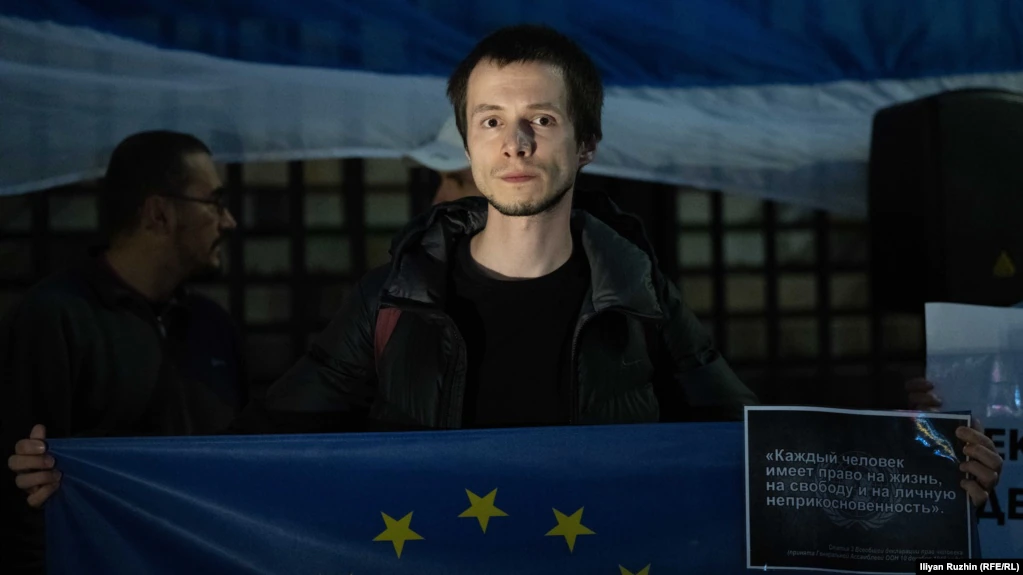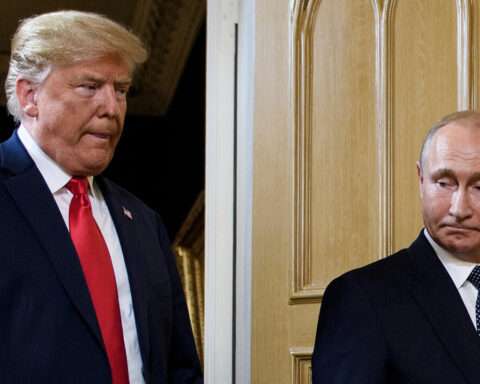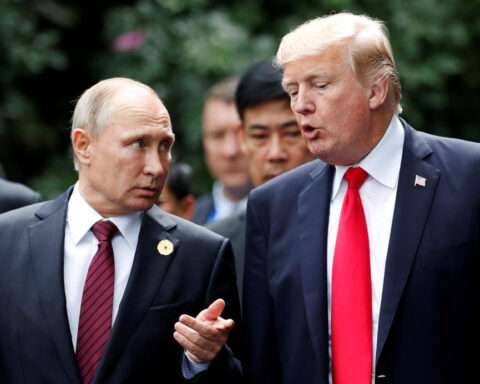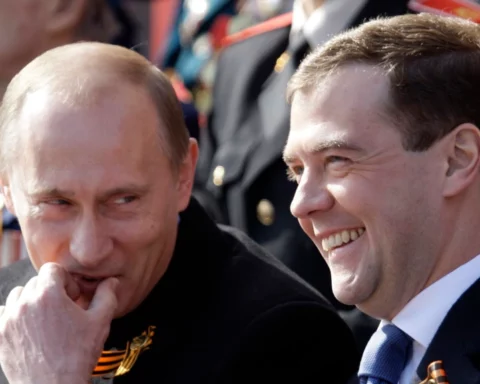SOFIA — Aleksandr Stotsky’s name was already high on the growing list of Russians fleeing their homeland since its full-scale invasion of Ukraine began.
He was among the first to go, after all.
But now, nearly eight months after boarding a one-way flight from Moscow to Bulgaria on February 25, the second day of the war, he’s joined a more select group of expatriates openly protesting Kremlin policies while trying to stay one step ahead of the Russian authorities.
The 26-year-old former conscript has been called up for military service as part of the “partial” mobilization that Russian President Vladimir Putin announced last month, sparking a fresh rush for the border by tens of thousands of fighting-age Russian men.
“If I return to Russia, there are two options for me — put me in prison or send me to the front,” he said. “I can’t be part of this, I don’t want to be among war criminals.”
It’s potentially a life-or-death predicament for Stotsky, who acknowledges ignoring a summons for military duty in the months leading up to the war.
But it’s also confounding authorities in Bulgaria, which has already flirted once with becoming the only EU state to extradite a Russian since Putin launched the invasion and outlawed criticism of the war effort. In that case, an appeals court in August dismissed Moscow’s extradition request for fugitive Russian businessman Aleksei Alchin, who was wanted in Russia for alleged financial crimes and who burned his Russian passport in a show of protest in eastern Bulgaria.
A New Kind Of Test
Stotsky’s fate will be up in the air for at least another month, until a Sofia court hears his appeal against the denial of his application for asylum.
And, his lawyers say, his case differs in a crucial regard that makes it an entirely new test case for Russian asylum requests in the European Union with no early end in sight to the conflict.
He’s a potential refugee sur place, an individual who is not a refugee when they leave their country of origin and requires protection on account of subsequent events.
“His opposition activity is developing here in Bulgaria,” his lawyer, Georgi Voinov from the Bulgarian Helsinki Committee, told the Dnevnik daily newspaper last week. “He’s not a man who’s doing it to justify his story, he didn’t come as an economic migrant. He has no relatives or property here; he just found the first possible flight to Bulgaria shortly before it became impossible.”
Such cases are certain to multiply as the unprovoked war in Ukraine grinds on and Russians crowd remaining routes out of the country despite Western flight and entry bans intended to punish Russia for its policies.
Stotsky, who worked as a courier and in a computer repair shop after graduating with a degree in civil safety from Moscow City University last year, says he was never a Kremlin supporter.
He claims to have demonstrated in defense of jailed opposition leader and poisoning victim Aleksei Navalny, and says he was an election observer in Russia’s 2021 general elections on behalf of two unsuccessful independents allied with Navalny, one of whom was disqualified.
Then came Russia’s “recognition” of two separatist-held areas of Ukraine on February 21 and its full-scale invasion three days later.
‘I Had To Say Something’
Whatever his sympathies up to that point, Stotsky immediately rushed to get on a flight out of Russia.
“That night, that moment when it all started, I thought there was no future for Russia. It was a real red line and they crossed it,” Stotsky told RFE/RL’s Bulgarian Service. “I knew I couldn’t be silent. That I can’t live a lie and pretend nothing happened.”
Within hours of his arrival in Sofia on February 25, Stotsky was picketing outside the Russian Embassy holding a piece of paper with “Stop the war” scrawled on it in English.

Just a week later, Stotsky says, he applied for refugee status with the Bulgarian State Agency for Refugees (AREF). He has since participated in pro-Ukraine marches and demonstrated alongside a group of expatriate Putin critics in Bulgaria that calls itself For a Free Russia.
But AREF rejected Stotsky’s application for asylum in July, saying there were “no real grounds” for believing he would face persecution back in Russia. He had not “carried out any well-known, public, and overt activities that would have unequivocally declared his beliefs and orientation” toward the opposition while in Russia, it said, and suggested his account might have been “composed for the selfish purpose” of gaining Bulgarian asylum.
Fugitive From Mobilization
Russian authorities have criminalized anti-war dissent, tightened censorship, and curbed independent media and civil society at home. Thousands of Russians have been jailed, and one prominent oppositionist has been charged with high treason in a case that the New-York based Human Rights Watch calls “a travesty of justice” aimed at silencing war critics.
An independent Russian rights watchdog, OVD-Info, also says detained anti-war protesters are being specifically targeted for conscription.
On October 3, less than two weeks after Putin’s “partial” mobilization announcement and two months after Bulgaria’s initial rejection of Stotsky’s application for refugee status, Stotsky’s mother says she found a draft notice for her son in the mailbox.

“Of course, war is never a good thing, but what Russia is doing is simply indescribable,” Stotsky said. “Putin is a dictator. A war criminal.”
Moreover, Stotsky insists, he doesn’t meet the Defense Ministry’s declared intent to draft only experienced reservists with military specialization. He says he fulfilled his compulsory military service in 2015-16 and was trained to operate acoustic systems that are sometimes used to disperse protests.
But Stotsky also acknowledges having received a summons to report for military exercises in the run-up to the invasion, when Russia was amassing at least 170,000 troops near the Russian and Belarusian borders with Ukraine.
Lawyer Voinov says Stotsky left his homeland “as a sign of protest against the war” and argues that it’s “extremely strange” of Bulgarian authorities to suggest “that there are working democratic institutions” in Russia.
The Administrative Court in Sofia has now set a date of November 14 for Stotsky’s appeal.






